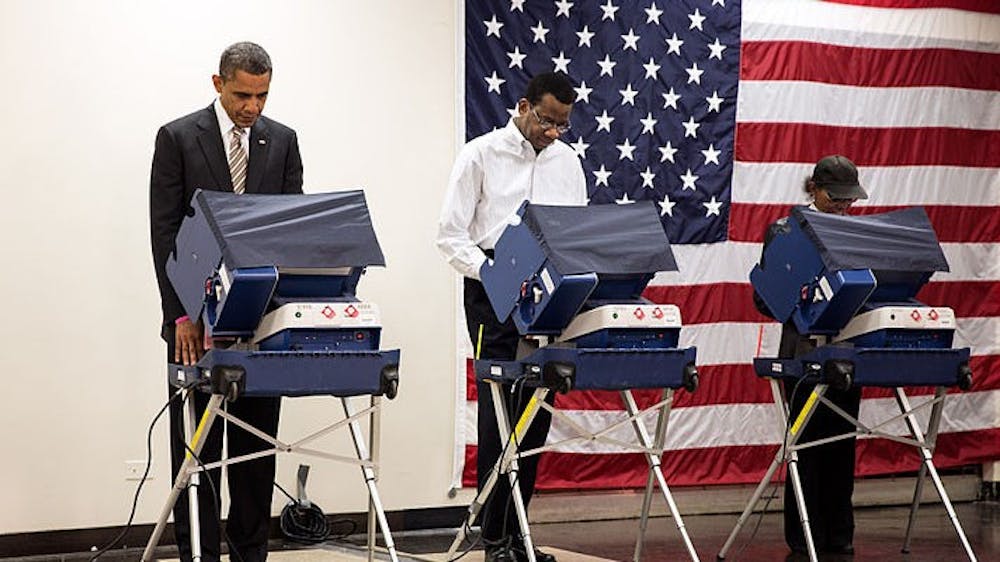Despite all of the media attention and millions of Americans getting ready to vote, the U.S. will probably lag far behind in voter turnout rates, compared to a majority of developed democratic nations.
In 2012, 53.6 percent of the eligible population voted in the general election, according to Pew Research Center. This pales in comparison to the majority of developed nations, such as South Korea and Denmark, which had more than 80 percent of their eligible population vote.
For a nation that touts its democratic ideals to developing ones around the globe, it lacks a strong-willed population that cares about voting. There are two significant reasons for a low voter turnout rate: Voter apathy and legal hurdles that make it difficult to vote.
Young people tend to follow the news less than older generations and see politics as unmoral and unethical in its nature, according to Curtis Gans, the director of the Committee for the Study of the American Electorate, reported PBS. Gans also said there is a lack of civic involvement and participation, leaving the younger generation out of touch with public affairs and events.
The separation of politics from Americans is based on the mentality that their actions are useless in the grand scheme of the political process. Does one vote in millions really matter?
In the case of the neck-and-neck 2000 presidential election between George W. Bush and Al Gore, every vote did matter in Florida. If the voter turnout rate was higher, the battle could have been more easily won by either candidate — having a few extra thousand votes could have made the difference in the counting process.
That election also exemplifies people’s problems with the voting process. While a clear victory would have negated the necessity to recount the votes, the actual results are still debated. CNN published a detailed article last year, explaining the complicated way in which votes were recounted or not counted at all.
While every vote may matter ideally, the fact that votes can be miscounted, cast fraudulently, lost or debated only serves to discourage Americans from voting in the future. Though the Constitution and its amendments guarantee every U.S. citizen above the age of 18 the right to vote, it is not that simple.
Eligible citizens quickly see an array of hurdles that they may have to face, just to take part in the democratic process. On the top of the list is making time to vote. Traditionally, midterm and general elections are held on the first Tuesday of November, barring some from conveniently driving to polls because of work and family obligations. Columbus Day may be a federal holiday, but Election Day is a media frenzy on top of a work and school day.
The New York Times reported that at least one political campaign organized rental cars and buses to transport college students back to their hometowns for the Iowa caucus, while other college students said they planned to opt out to attend class. The timing and location problems associated with voting in the U.S. only scratch the surface.
Voter registration and identification requirements put restrictions on low income people who do not have a photo ID, the means to register or even a valid address. Requirements differ greatly by state, and potential voters often find it hard to find a candidate that is right for them, let alone, be able to comprehend the voting process.
Little about the U.S.’s election process is easy to understand, and taking a part in it is a daunting task. While civic duty may have been a highlight of previous generations, it is faded away into a sea of apathy. There is, however, one easy tool Shippensburg University students have on their side — the Internet.
Search “PA online voter registration” or go to www.pavoterservices.state.pa.us to register to vote and learn about the process. The Pennsylvania deadline is March 28 to participate in the presidential primary election.
If you are a resident of Maryland, visit www.elections.state.md.us to register before the April 5 deadline.




The Slate welcomes thoughtful discussion on all of our stories, but please keep comments civil and on-topic. Read our full guidelines here.